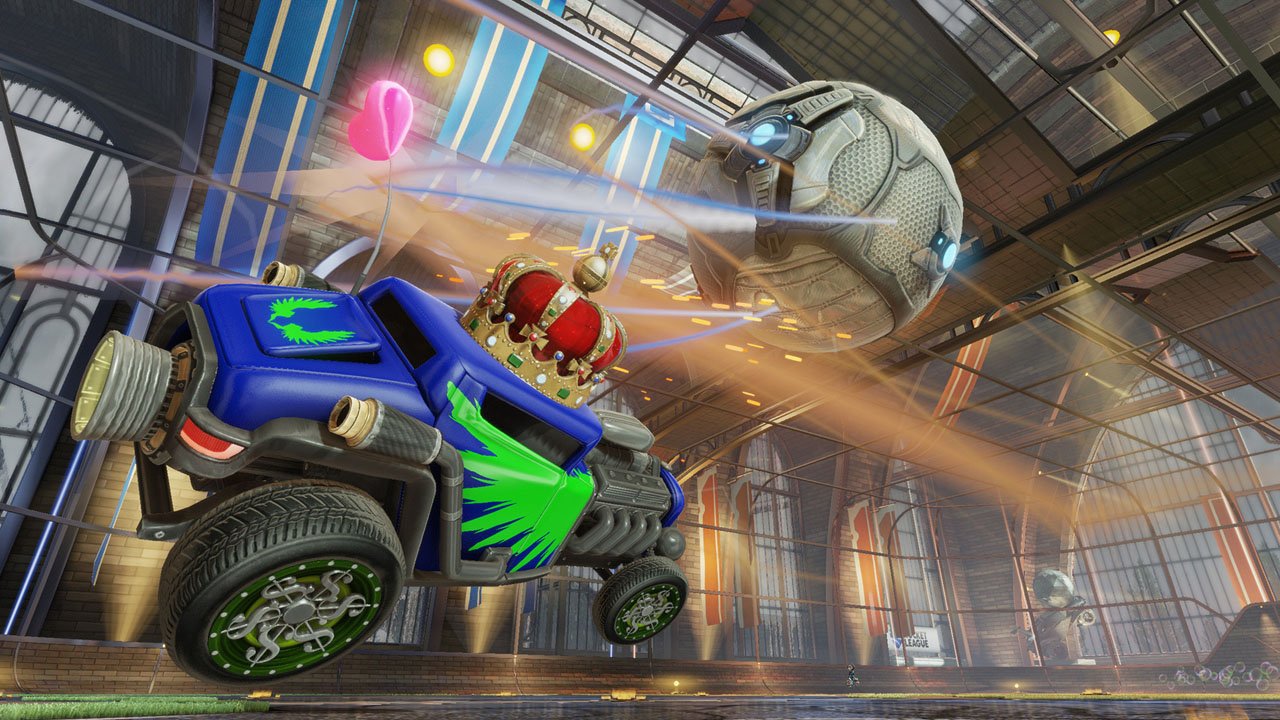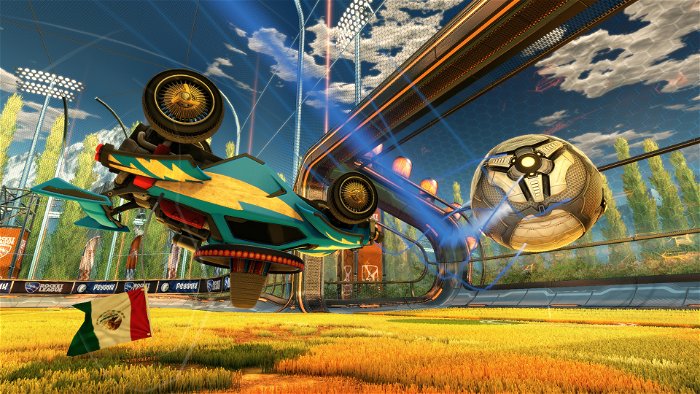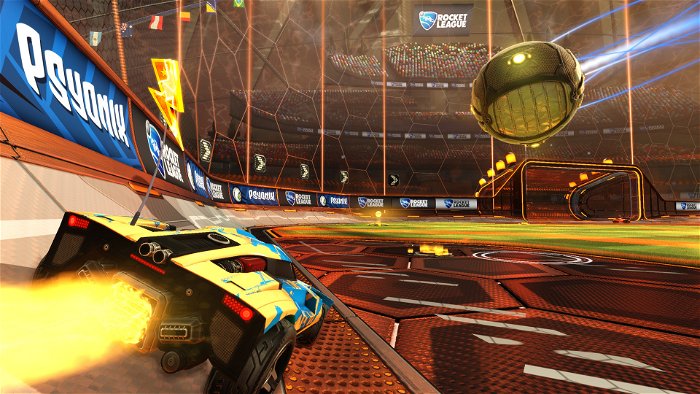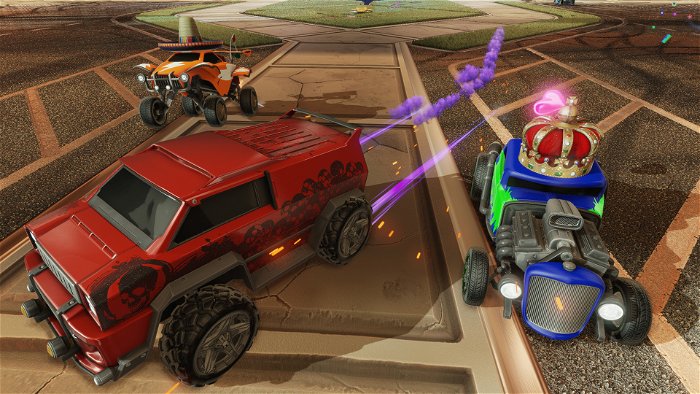
I have fond memories of playing NBA Jam on a friend’s Super Nintendo growing up. For a few years, when we were kids at school together, we’d go to his house during the lunch hour break, eat as quickly as possible, then get a few games in before we ran out of time. I haven’t really played NBA Jam since then. I didn’t have a Super Nintendo of my own, and by the time I finally did get a console, I was more interested in story-driven games and platformers than anything focused on real-world sports.
Still, when I think of the ideal multiplayer game, I usually think of NBA Jam. Though it’s a title meant, ostensibly, to capture the feel of a professional basketball game, Jam only shares superficial similarities with its subject matter. Sure, players can pick from real teams and real players, but no matter how faithfully its competitors are modeled, the super-high dunks, light-up turbo shoes, and flaming basketballs introduce an enormous degree of arcade fantasy. Jam strips a real sport of any rules it doesn’t need, and introduces new elements to make it more enjoyable for the casual player. Instead of worrying over detailed statistics and strict re-creations of basketball rules, the game chooses to reproduce only the most basic elements of the sport. This makes it easy for anyone—regardless of their interest in basketball—to enjoy it.
NBA Jam came out in 1994. Since then, the arcade style sports game has largely fallen out of favour. There are exceptions, like Messhoff’s Nidhogg and Die Gute Fabrik’s Sportfriends, which collects an assortment of made-up sports. (My favourites are the physics dueler Super Pole Riders and sumo/dodge ball hybrid BaraBariBall.) Yet, despite the success of these games, sports titles are typically aimed at hardcore fans of the real games. Understandably, big-budget releases attempt to attract audiences by simulating the minutiae of games like soccer, baseball, basketball, hockey, and football. In an appeal to realism, they offer intricate control schemes, detailed statistics, and, of course, exact replications of the rules of the games they’re based on.
For all that, they’re usually pretty inaccessible to anyone without a deep familiarity with the real-world sports they model. A player who doesn’t follow American football isn’t going to have an easy time getting into the latest Madden, even if they understand the fundamentals of football’s rule set. By catering to existing fans, sports games like these alienate potential newcomers.
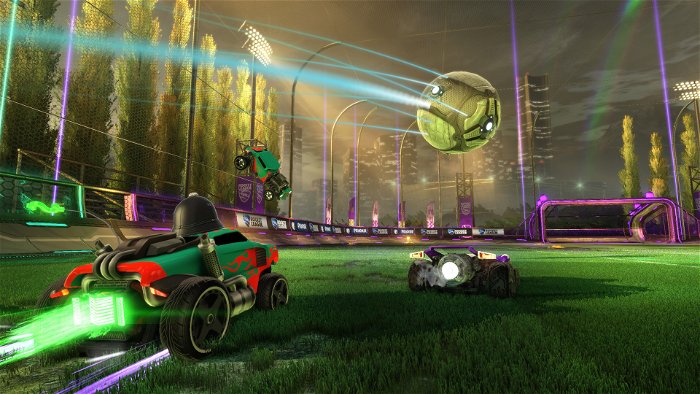
Psyonix’s Rocket League, on the other hand, follows in the spirit of NBA Jam. It abstracts a real sport—soccer, in its case—in order to boil it down to its foundation. Players understand that they need to get the ball from one end of the pitch to the other. They may even grasp some of basic strategies of soccer’s player positioning, but, Rocket League’s outsized arcade elements (like the fact that its version of soccer sees humans replaced with rocket-powered cars) make up for the lack of a deeper sports simulation.
It takes only a few minutes to understand the appeal of Rocket League. Its controls are simple enough that figuring them out is quick, even if mastering them takes hours; its objectives are clear, even if there’s a wealth of strategy to uncover over time. It’s a straightforward game that only reveals its depth for players who want to find it. Rather than introduce itself with various car and team statistics or complicated rule systems, Rocket League focuses on the immediate, basic appeal of soccer. Its mechanics open up as the player becomes more skilled, but getting into it doesn’t require the steep learning curve of so many traditional sports games. Rocket League, in essence, does for soccer what NBA Jam does for basketball—making the sport more of an arcade experience than a detailed simulation.
Mainstream sports games serve a specific demographic; they give fans of real-world sports the ability to interact with in-depth simulations of the games they love. These are great titles for those already invested in the games they’re based on, but they don’t do much to ease others in. Casual alternatives like NBA Jam and Rocket League provide a nice complement to these experiences, representing the fundamental appeal of the sports they draw inspiration from without requiring their players to learn more than they care to learn.
